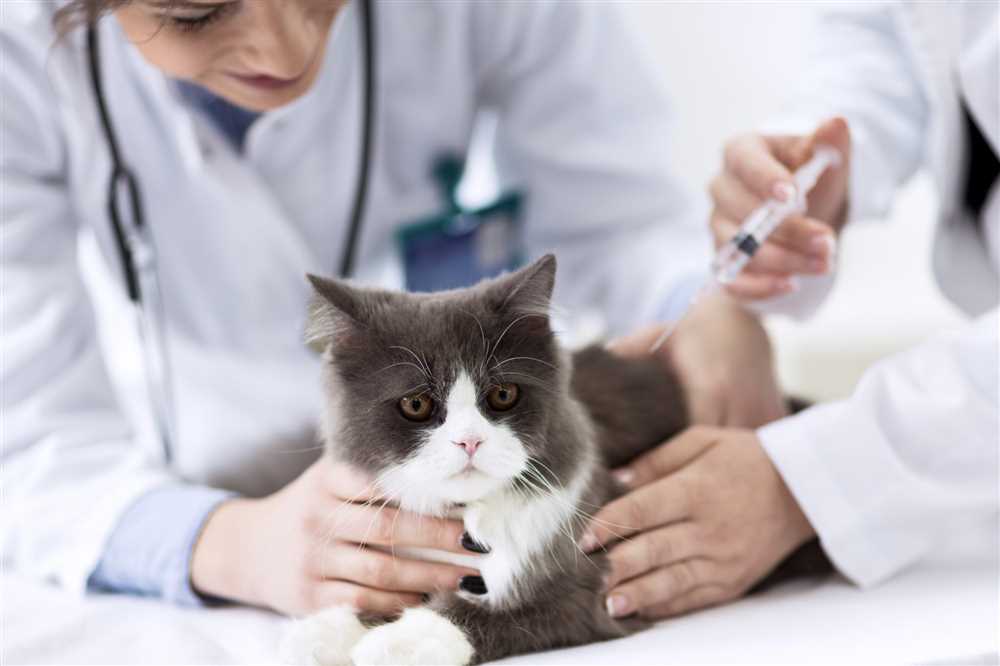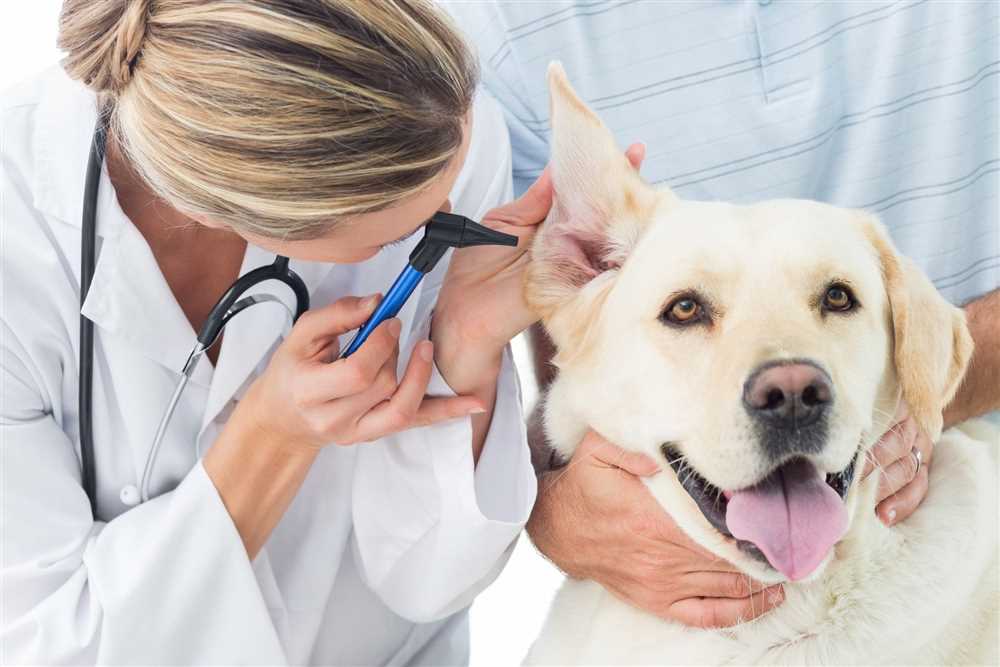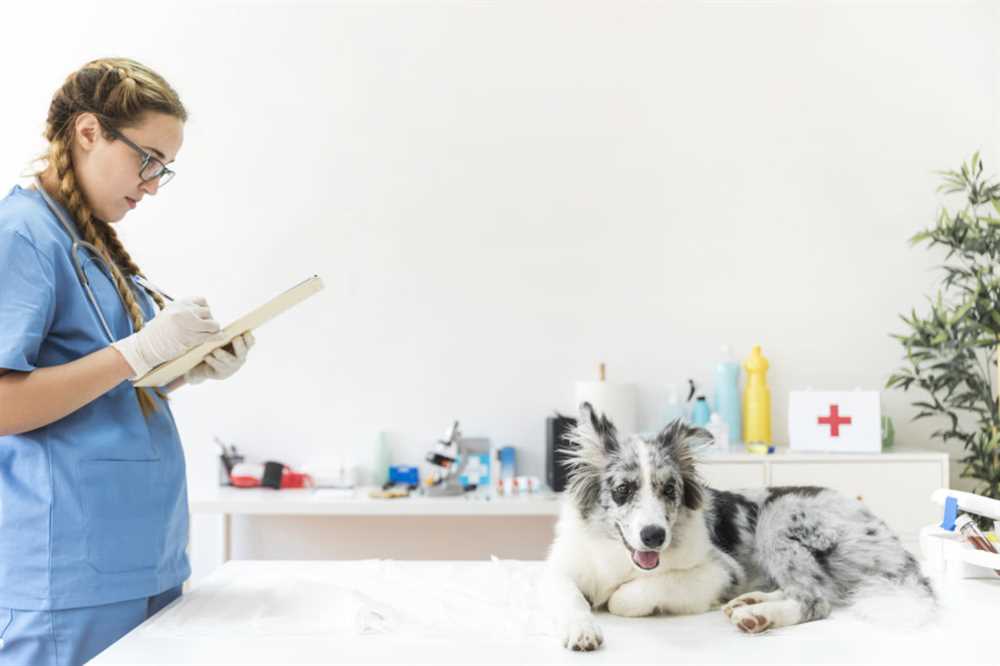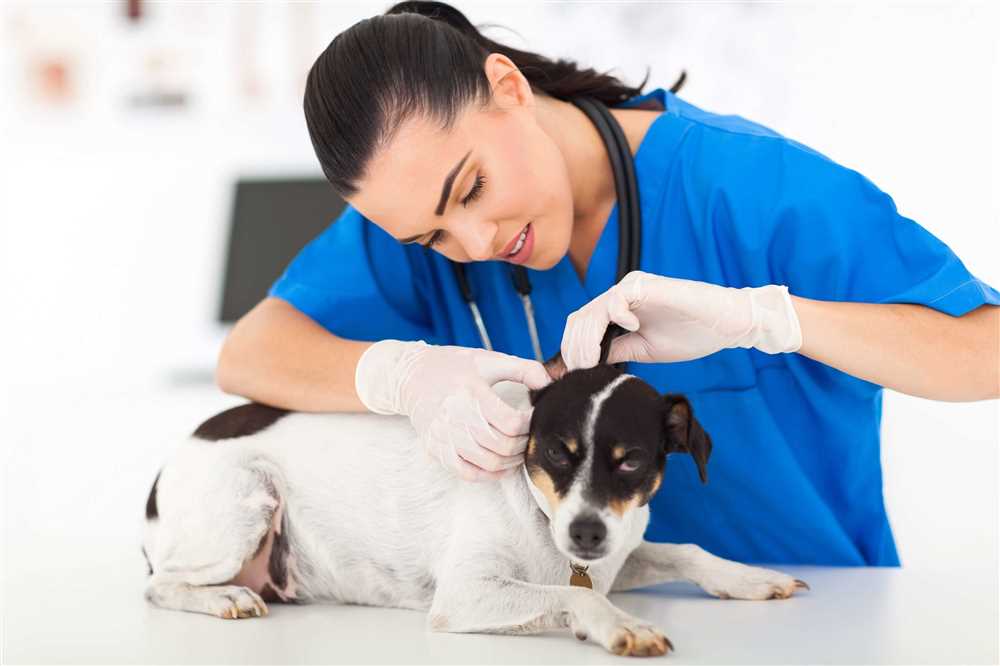
Veterinary exams are a critical part of maintaining the health and well-being of our beloved pets. These exams are essential for detecting and preventing potential health issues at an early stage, ensuring that our animal companions live a long and happy life. During these exams, veterinarians thoroughly examine the animal, perform necessary tests, and provide preventive care to keep our furry friends in optimal condition.
Regular veterinary exams are important for pets of all ages. For young animals, these exams help monitor their growth and development and ensure that they receive the necessary vaccinations and preventive treatments. Older pets benefit from these exams by allowing veterinarians to identify and manage age-related diseases such as arthritis or kidney problems. Additionally, veterinary exams give pet owners the opportunity to discuss any concerns or questions they may have about their pet’s behavior or overall health.
During a veterinary exam, the veterinarian will conduct a comprehensive physical examination, looking for any signs of illness or abnormalities. They will check the pet’s vital signs, examine their ears, eyes, and teeth, and palpate the abdomen to detect any potential issues. The veterinarian may also recommend specific diagnostic tests such as blood work, urine analysis, or X-rays to get a more in-depth understanding of the pet’s health.
Overall, veterinary exams play a crucial role in maintaining the health and well-being of our pets. By regularly scheduling these exams, pet owners can ensure that their furry friends receive the necessary care and attention they need to live a happy and healthy life.
Why are veterinary exams important for your pet’s health?

Regular veterinary exams are essential for maintaining your pet’s health and well-being. These exams allow veterinarians to detect and prevent potential health issues, ensuring that your furry friend receives the necessary care and treatment.
During veterinary exams, veterinarians thoroughly examine your pet’s physical condition, checking for any abnormalities or signs of illness. They may also perform various diagnostic tests, such as blood work or X-rays, to further assess your pet’s overall health. These exams help identify early signs of diseases or conditions that may not be apparent to the naked eye.
By detecting health issues early on, veterinary exams can prevent the development of more serious problems and potentially save your pet’s life. Early intervention and treatment are crucial in managing illnesses and improving prognosis. Additionally, regular exams allow veterinarians to ensure that your pet’s vaccinations are up to date, protecting them from contagious diseases.
Veterinary exams also provide an opportunity for you to discuss any concerns or questions you may have about your pet’s health. Your veterinarian can give advice on nutrition, behavior, or any other aspect of pet care, helping you provide the best possible quality of life for your furry companion.
In conclusion, veterinary exams play a vital role in maintaining your pet’s health and well-being by allowing early detection and prevention of potential health issues. By prioritizing regular veterinary visits, you can ensure that your pet receives the necessary care and treatment, leading to a longer and happier life.
Understanding the different types of veterinary exams
When it comes to caring for animals, veterinary exams are an important part of ensuring their health and well-being. There are several different types of veterinary exams that serve different purposes and focus on different areas of the animal’s health. Understanding these exams can help pet owners and veterinary professionals provide the best care for their furry patients.
1. Routine check-ups: Routine check-ups are a basic type of veterinary exam that should be done regularly for all pets, regardless of their age or health condition. These exams typically involve a thorough physical examination of the animal, including checking vital signs, inspecting the eyes, ears, teeth, and skin, and listening to the heart and lungs. Routine check-ups also often include vaccinations and preventive treatments such as flea and tick prevention.
2. Sick visits: Sick visits are veterinary exams that are specifically for animals that are showing signs of illness or injury. During a sick visit, the veterinarian will assess the symptoms and try to diagnose the underlying cause. This may involve running diagnostic tests, such as blood work or X-rays, and prescribing medication or treatment. Sick visits are crucial for promptly identifying and addressing any health issues.
- 3. Pre-operative exams: Pre-operative exams are performed before a pet undergoes surgery or another invasive procedure. These exams are important for ensuring that the animal is in good health and can safely handle the anesthesia and the surgical procedure. Pre-operative exams may include blood work, X-rays, and other diagnostic tests to assess the animal’s overall health and identify any potential risks or complications.
4. Senior pet exams: As animals age, their health needs change, and regular senior pet exams become essential. These exams are tailored to the specific needs of older animals, focusing on age-related conditions such as arthritis, cognitive decline, dental disease, and organ function. Senior pet exams often include blood work, urinalysis, and other tests to monitor the animal’s overall health and detect any age-related issues.
By understanding the different types of veterinary exams, pet owners can ensure that their animals receive the appropriate care and attention throughout their lives. Regular routine check-ups, prompt sick visits, thorough pre-operative exams, and attentive senior pet exams all contribute to the overall health and well-being of our furry friends.
What to expect during a routine veterinary exam

Going to the vet for a routine check-up is an important part of ensuring the health and well-being of your pet. During these exams, veterinarians will thoroughly assess your pet’s overall health, look for any potential signs of illness or injury, and provide preventive care. Knowing what to expect during a routine veterinary exam can help alleviate any anxiety and make the experience more comfortable for both you and your furry friend.
First, you can expect the veterinarian to take a detailed medical history of your pet. This includes asking questions about your pet’s diet, exercise routine, behavior, and any previous health issues. It’s important to provide accurate and detailed information to help the vet understand your pet’s overall health and any potential risk factors.
Next, the veterinarian will perform a physical examination of your pet. This usually involves checking your pet’s weight, body condition, and assessing their vital signs such as heart rate, respiratory rate, and temperature. The vet will also examine your pet’s eyes, ears, nose, and mouth, looking for any signs of infection or abnormalities. They will palpate your pet’s abdomen, feeling for any lumps, and listen to their heart and lungs with a stethoscope.
During the exam, the veterinarian may also recommend additional diagnostic tests such as blood work, urinalysis, or X-rays. These tests can provide a more in-depth evaluation of your pet’s health and help detect any underlying medical conditions that may not be apparent during the physical examination. Depending on the findings, the vet may recommend treatment options or further specialized care.
In addition to the physical examination, routine veterinary exams often include preventive care measures such as vaccinations, parasite control, and dental care. The vet will discuss the appropriate vaccinations for your pet based on their age, lifestyle, and potential exposure to diseases. They may also recommend flea and tick preventives, heartworm prevention, and regular dental cleanings to maintain your pet’s oral health.
Overall, a routine veterinary exam is an essential part of keeping your pet healthy and preventing potential health issues. By knowing what to expect and being prepared with accurate information about your pet’s health, you can ensure a successful and beneficial visit to the veterinarian.
The importance of regular vaccinations and preventive care

Regular vaccinations and preventive care are essential for maintaining the health and well-being of animals. By ensuring that pets receive all necessary vaccinations, pet owners can protect them from potentially serious and even life-threatening diseases. Vaccinations stimulate the pet’s immune system, helping them develop immunity to specific diseases. This is crucial because it can prevent the spread of infectious diseases within the pet population and even to humans.
Preventive care also includes regular check-ups with a veterinarian. These routine visits allow the vet to detect any potential health issues early on, before they become more serious and costly to treat. During these visits, vaccinations can be administered, and the vet can also provide recommendations for parasite prevention and control, such as flea and tick treatments.
One of the main benefits of regular vaccinations and preventive care is the prevention of diseases. By vaccinating animals against common diseases, pet owners can drastically reduce the risk of their pets contracting these illnesses. Some diseases, like rabies, can even be fatal. Vaccinating against rabies not only protects the pet but also helps to prevent the spread of the disease to humans, as rabies is zoonotic.
Another important aspect of preventive care is the early detection of health issues. By bringing pets in for regular check-ups, veterinarians can perform physical examinations and diagnostic tests to identify any underlying health conditions. Early detection allows for prompt treatment, increasing the chances of a positive outcome. Additionally, preventive care visits offer an opportunity for pet owners to discuss their pet’s diet, behavior, and overall well-being with a veterinarian, ensuring that they are providing the best possible care.
- Vaccinations and preventive care help protect animals from diseases.
- Regular check-ups allow for the early detection of health issues.
- Preventive care visits provide an opportunity for pet owners to discuss their pet’s well-being with a veterinarian.
- Preventive care can prevent the spread of infectious diseases to humans.
- By investing in regular vaccinations and preventive care, pet owners can give their pets the best chance at a long and healthy life.
How to prepare your pet for a veterinary exam
Going to the veterinarian can be a stressful experience for both pets and their owners. However, there are a few steps you can take to prepare your pet for a successful veterinary exam. By following these tips, you can help alleviate your pet’s anxiety and ensure a more productive visit.
1. Familiarize your pet with the carrier: If your pet will need to be transported in a carrier, make sure they are comfortable and familiar with it beforehand. Leave the carrier out in the house and encourage your pet to explore it. Gradually increase the time your pet spends in the carrier to help them associate it with positive experiences.
2. Practice handling: Many veterinary exams involve being touched and handled by the veterinarian. Get your pet accustomed to being touched in similar ways by gently handling their paws, ears, and other sensitive areas. Offer treats and praise to create positive associations with this type of handling.
3. Bring relevant documents: Before your veterinary visit, gather any relevant documents such as vaccination records, medical history, and any information about your pet’s behavior or recent changes in their health. This will help the veterinarian have a better understanding of your pet’s overall health.
4. Calm your own nerves: Pets are highly sensitive to their owners’ emotions. If you are anxious or stressed about the veterinary visit, your pet may pick up on these feelings and become more anxious themselves. Take deep breaths, stay calm, and maintain a positive attitude to help your pet feel more at ease.
5. Keep your pet’s routine: Stick to your pet’s regular feeding and exercise routine before the veterinary exam. This will help keep them calm and prevent any unnecessary stress. However, avoid feeding your pet right before the visit to prevent an upset stomach during the exam.
6. Consider a pre-visit sedative: If you know your pet gets extremely anxious or fearful at the veterinary clinic, discuss the option of a pre-visit sedative with your veterinarian. This can help your pet relax and make the exam less stressful for everyone involved.
By taking these steps to prepare your pet for a veterinary exam, you can help create a more positive experience for both your pet and the veterinarian. Remember to stay calm, patient, and understanding throughout the process, and reward your pet with treats and praise for their cooperation.
Recognizing the signs that your pet may need a veterinary exam
If you are a pet owner, it is important to be aware of the signs that may indicate your pet is in need of a veterinary exam. Pets, just like humans, can experience various health issues and it is crucial to catch these issues early on to ensure they receive the proper care and treatment.
1. Changes in behavior: One of the first signs that your pet may need a veterinary exam is a change in their behavior. If your usually active and playful pet becomes lethargic or withdrawn, it could be an indication that they are not feeling well.
2. Loss of appetite: Another common sign is a sudden loss of appetite. If your pet refuses to eat or show disinterest in their food, it could be an indication of an underlying health issue that requires medical attention.
3. Excessive thirst or urination: Frequent urination coupled with an increased thirst can be a sign of a urinary tract infection, diabetes, or kidney disease. If your pet is showing these symptoms, it is important to consult with a vet to rule out any serious conditions.
4. Limping or difficulty moving: If your pet is limping or having difficulty moving, it could be a sign of an injury or joint issue. Pets often try to hide their pain, so it is important to watch for any changes in their mobility.
5. Vomiting or diarrhea: Frequent vomiting or diarrhea can be a sign of an underlying gastrointestinal issue or even a more serious condition. If your pet is experiencing these symptoms, it is important to seek veterinary care to prevent dehydration and further complications.
In conclusion, being observant and attentive to your pet’s behavior and physical condition is essential in recognizing the signs that they may need a veterinary exam. Early detection of health issues can greatly improve the chances of successful treatment and a speedy recovery for your beloved pet.